Salesforce
Salesforce is a CRM software suite from Salesforce.com. (Salesforce offers software products and services other than CRM. However, within the AgilePoint NX documentation, "Salesforce" usually refers to the Salesforce CRM service.)
Integrations and Connectors
AgilePoint NX integrates in these ways with Salesforce:
- AgilePoint NX App for Salesforce
- Activities in Process Builder
- Authentication
- Lookups in eForm Builder
- Data source for process-based app
- Data source for form-based app
- Access tokens
AgilePoint NX App for Salesforce
The Dashboard is a Salesforce App that lets you use the AgilePoint Work Center in Salesforce. AgilePoint NX Salesforce Dashboard lets you manage your AgilePoint tasks and processes, from Salesforce.
For more information, refer to:
- AgilePoint NX App for Salesforce.
- Install and Configure the AgilePoint NX App for Salesforce.
- AgilePoint NX Dashboard for Salesforce.
- Manage Center for Salesforce.
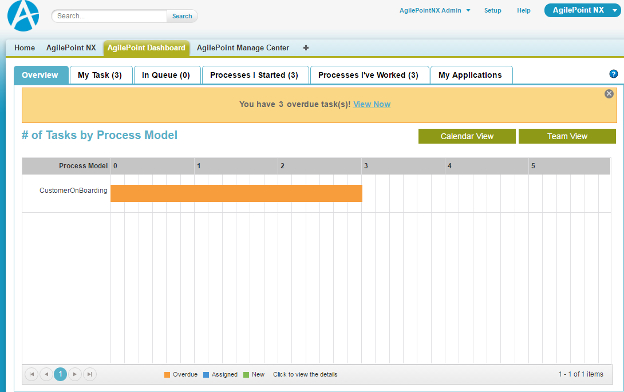
Activities in Process Builder
You can use out-of-the-box activities for Salesforce to execute actions in process-based apps.
An activity is a functional unit, or task, in a process-based app. Activities that integrate with a third-party system provide access to the API functionality for that system in a simple, point-and-click, form-entry format. This means that you can easily leverage APIs without writing code.
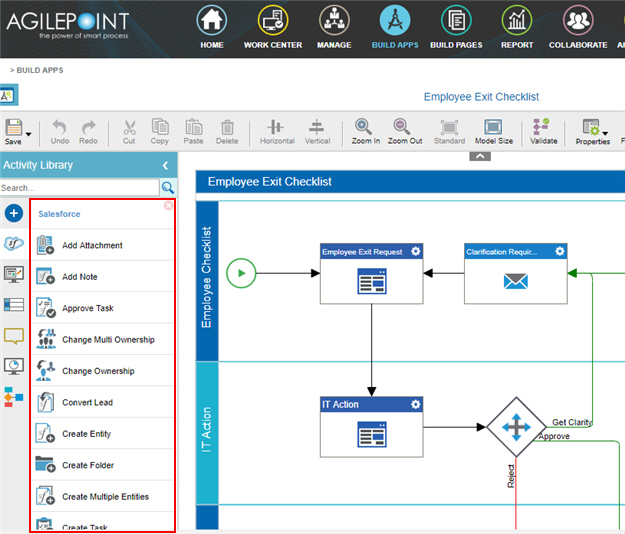
The following activities are available for Salesforce:
- Add Attachment
- Add Note
- Approve Task
- Change Multi Ownership
- Change Ownership
- Convert Lead
- Create Entity
- Create Folder
- Create Multiple Entities
- Create Task
- Delete Attachment
- Delete Entity
- Delete Multiple Entities
- Download Attachment
- Download Document
- Query Advanced Entity
- Query Entity
- Reject Task
- Send Salesforce E-mail
- Submit Approval Process
- Update Entity
- Update Multiple Entities
- Upload Document
- Upsert Entity
For more information, refer to the process activities for Salesforce in Process Builder.
Authentication
You can use Salesforce to authenticate and sign in to NX Portal .
For more information, refer to:
- Enable Salesforce Authentication
- Sign Up for AgilePoint NX with a Salesforce Account
- Sign In with Salesforce
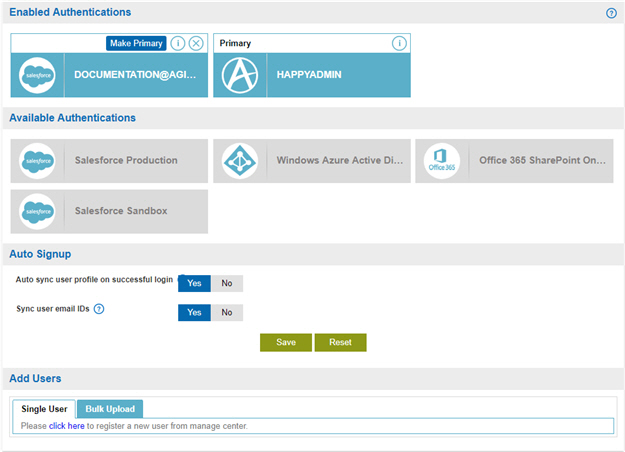
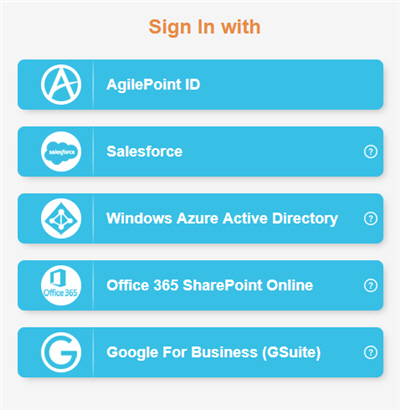
Lookups in eForm Builder
You can create lookups for Salesforce in eForm Builder and form-based apps.
A lookup is an automated procedure that retrieves data from an external data source, such as a database or third-party service, to display runtime. For example, you can use a lookup to populate the options in a list on an eForm.
For more information, refer to Salesforce lookup configuration screens.
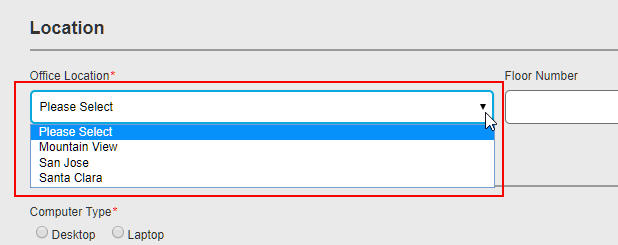
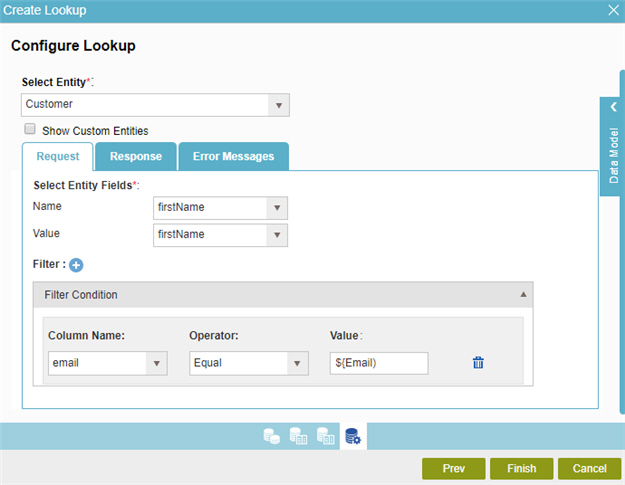
This image is only one example configuration screen from the Auto-Lookup form control. It does not show all the configuration options, and lookups can be configured and executed in multiple ways. The Auto-Lookup control can perform a lookup for eForms or other controls. However, many other form controls have built-in lookup capabilities — for example, the Drop-Down List form control. For information about how to configure lookups, refer to eForm Controls.
Data Source for Process-Based Apps
You can use Salesforce as a primary data source for your process-based app. A primary data source provides a default data model for your app.
For more information, refer to Process-based application data source.
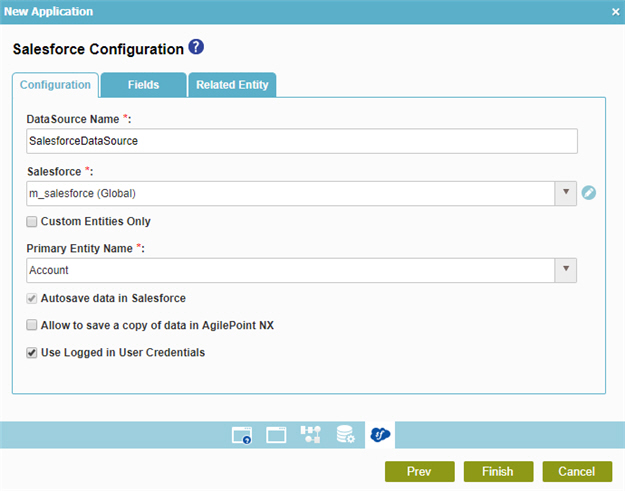
Data Source for Form-Based App
You can use Salesforce as a primary data source for your form-based app. A primary data source provides a default data model for your app.
For more information, refer to Form-based application data source.
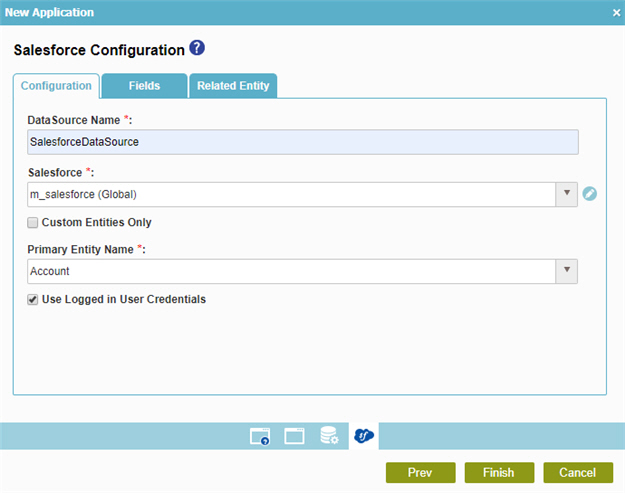
Access Tokens
You can create access tokens for Salesforce.
An access token is a secure object that stores an endpoint (usually a URL) and authentication credentials to connect to a service or technology. Often this is an external or third-party service, like Salesforce or SharePoint, but access tokens can also connect to an AgilePoint NX enviornment, local database, or other types of technologies. Once an access token is created, application designers can simply select and reuse it, rather than entering the credentials each time they are needed.
For more information, refer to Access Token for Salesforce.
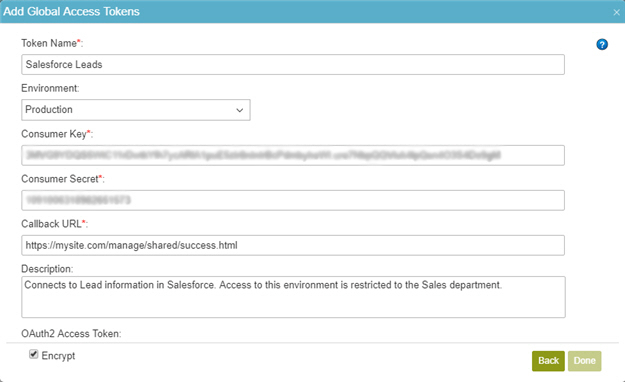
Related Topics
- Enable Salesforce Authentication
- Salesforce tab - Process activities
- Salesforce lookup configuration screens
- Access Token for Salesforce
- Add an Authentication Type
- My Process Is Missing Data from an External System
- My Process Stops on an Activity that Connects to an External System
- Salesforce Chatter tab - Process activities
- Create or Change a Chatter Template in the Application Builder
- Chatter Hashtag AgileConnector - AgilePoint NX OnPremises or AgilePoint NX PrivateCloud. Chatter hashtags.
- AgilePoint NX Dashboard for Salesforce (For v7.0 and higher, this feature is available only for AgilePoint NX OnPremises or AgilePoint NX PrivateCloud)
- Install and Configure the AgilePoint NX App for Salesforce (For v7.0 and higher, this feature is available only for AgilePoint NX OnPremises or AgilePoint NX PrivateCloud)
- Use the AgilePoint NX Salesforce App (For v7.0 and higher, this feature is available only for AgilePoint NX OnPremises or AgilePoint NX PrivateCloud)
- Salesforce Dashboard Procedures (For v7.0 and higher, the Salesforce option is available only for AgilePoint NX OnPremises or AgilePoint NX PrivateCloud)
- Manage Center for Salesforce (For v7.0 and higher, this feature is available only for AgilePoint NX OnPremises or AgilePoint NX PrivateCloud)
- Create a Form-Based Application with a Salesforce Entity
- Salesforce Data Source Configuration (New Process Model)
- Create an eForm for a Salesforce Form-Based Application
- Form-Based Application with a Salesforce Entity as a Data Source
Examples
Some information about third-party integrations is outside the scope of the AgilePoint NX Product Documentation, and it is the responsibility of the vendors who create and maintain these technologies to provide this information. This includes specific business uses cases and examples; explanations for third-party concepts; details about the data models and input and output data formats for third-party technologies; and various types of IDs, URL patterns, connection string formats, and other technical information that is specific to the third-party technologies. For more information, refer to Where Can I Find Information and Examples for Third-Party Integrations?
Video: Introduction and Overview
Video: Set up and Configuration
Video: Design the Process
Video: Salesforce Query and Second Form
Video: Add Conditions and Salesforce Actions
Video: Complete the Process
Video: Connect the Application and Walkthrough
Video: AgilePoint NX App for Salesforce
Video: AgilePoint NX Salesforce Instillation
Video: Integrate AgilePoint NX Application into Salesforce
Video: Show Data from Salesforce on an eForm
Salesforce Documentation
Use these links to find third-party vendor documentation for Salesforce:
About This Page
This page is a navigational feature that can help you find the most important information about this topic from one location. It centralizes access to information about the concept that may be found in different parts of the documentation, provides any videos that may be available for this topic, and facilitates search using synonyms or related terms. Use the links on this page to find the information that is the most relevant to your needs.
Keywords
Salesforce account, Salesforce, authentication, credentials, login, log in, logon, log on, sign in, sign-in, security, credential, account, sign on, sign-on, CRM, CRM integration, customer relationship management


